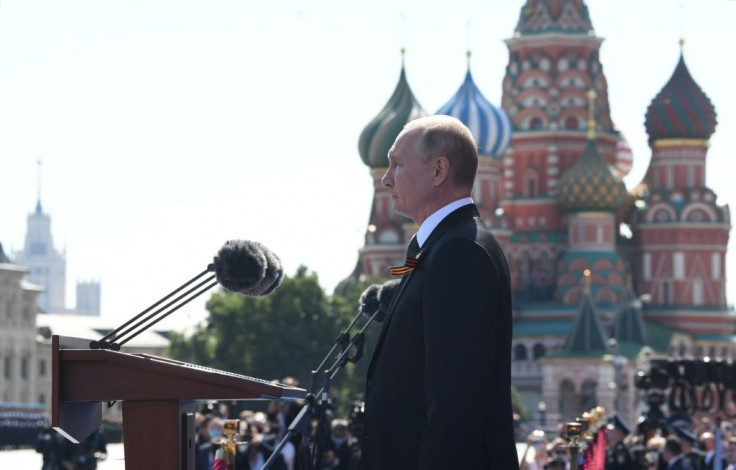Russian Opposition Leader Alexei Navalny Is Not The First Kremlin Critic To Suffer Strange Fate

KEY POINTS
- The Russian opposition leader was on a flight back to Moscow when he fell ill, forcing the plane to make an emergency landing
- Supports suspect he was poisoned, though the Kremlin has not commented on the accusations
- Other critics and whistleblowers have suffered strange fates suspected to be connected to the Kremlin
Russian anti-corruption activist Alexei Navalny has been an outspoken critic of President Vladimir Putin and the alleged corruption that has gripped the Kremlin. Navalny’s most recent criticisms focused on the constitutional reform vote that allows Putin to serve another two terms after serving four. Navalny referred to the reforms as a “coup” and a clear “violation of the constitution.”
On Friday, Navalny fell into a coma at a hospital in Omsk, Russia, while on a private flight back to Moscow.
Navalny, 44, was flying back from the Siberian city of Tomsk when he became ill. The flight made an emergency landing in Omsk and he was rushed to a nearby hospital for treatment. Flight attendants said he had some black tea while waiting for takeoff but did not have anything on the flight, leading to suspicion he was poisoned.
“This morning Navalny was returning to Moscow from Tomsk,” Navalny spokesperson Kira Yarmysh said on Twitter.
“During the flight, he felt ill. The plane made an urgent landing in Omsk. Alexei has toxic poisoning.
“We assume that Alexei was poisoned with something mixed into the tea. It was the only thing that he drank in the morning. Doctors say the toxin was absorbed faster through the hot liquid.”
In July 2019, Navalny was hospitalized with an "acute allergic reaction" a week after being arrested.
Kremlin spokesman Dmitry Peskov addressed Navalny’s recent condition during a regular press briefing.
“We know that he is in a serious condition. Doctors are now doing what is necessary. In Omsk, the best doctors are involved in this case,” Peskov said. “They hold consultations with specialists from Moscow. Of course, like for any citizen of our country, we wish him a speedy recovery.”
Peskov followed up saying the Kremlin was awaiting test results to see whether he was poisoned.
While the Kremlin is wishing Navalny a “speedy recovery,” this is not the first time that a Putin critic has faced such a health problem. Several have died under mysterious circumstances or said they were the target of assassination attempts.
Democracy activist, author, and filmmaker Vladimir Kara-Murza is one such example of this fear within Kremlin-opposition movements.
Murza said he was the target of multiple poisoning attempts by the Kremlin in 2015 and 2017, a suspicious reinforced after a German lab discovered elevated mercury, copper, manganese and zinc levels in his blood.
The Kremlin has repeatedly said these accusations were false.
Whistleblower Alexander Perepilichny is another suspected to have been killed by the Kremlin.
Perepilichny fled Russia in 2009 after aiding a Swiss-investigation into a Russian money-laundering scheme. He was living in London when his body was found near his home in November 2012 and questions immediately surrounded his death. London police ruled out foul play, but critics have been skeptical of this ruling especially after a deadly poison from the gelsemium plant was found in his system. It is suspected Perepilichny ingested the poison while eating a Russian-style soup with sorrel.
The Kremlin, again, denied any involvement in Perepilichny’s death.
© Copyright IBTimes 2025. All rights reserved.





















